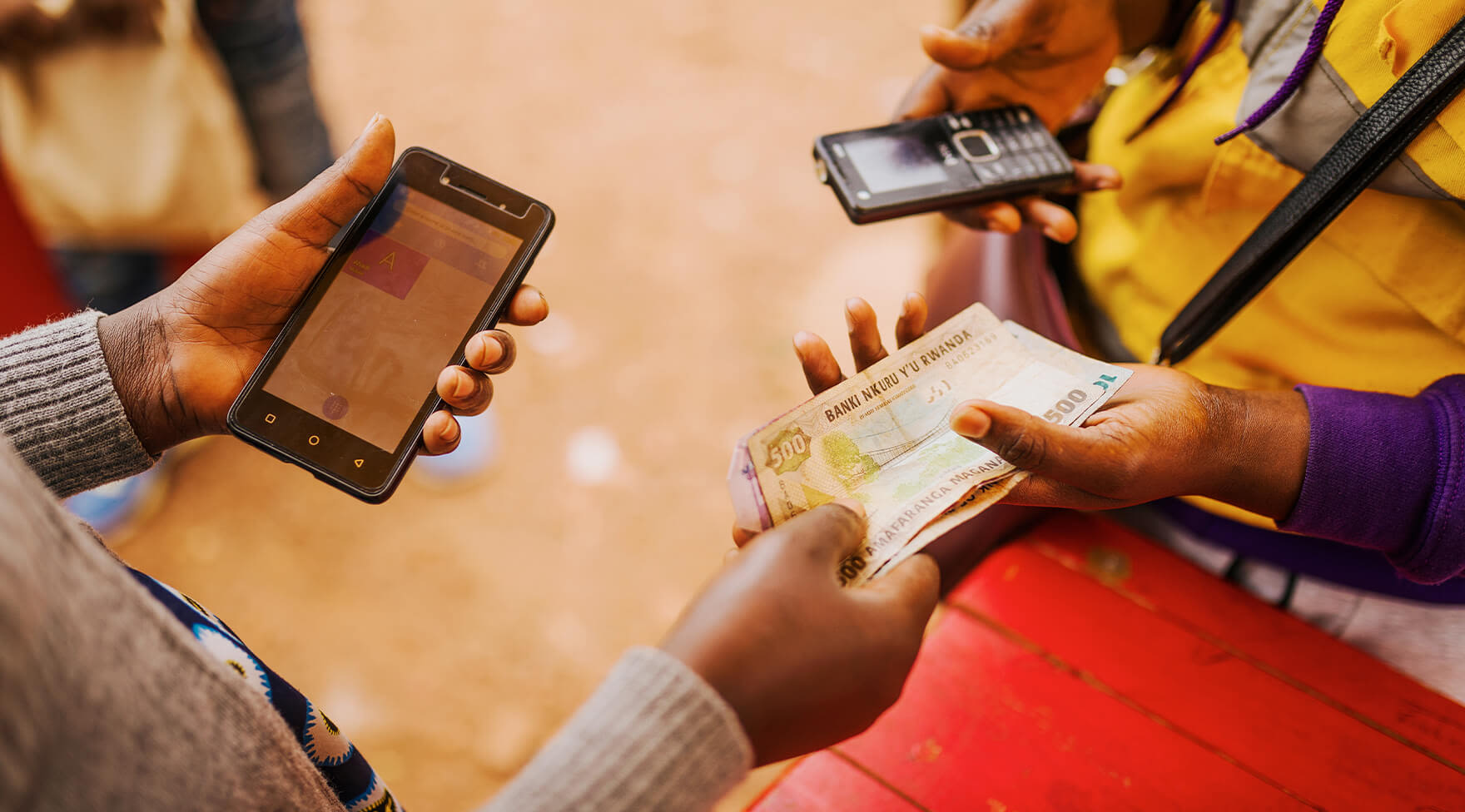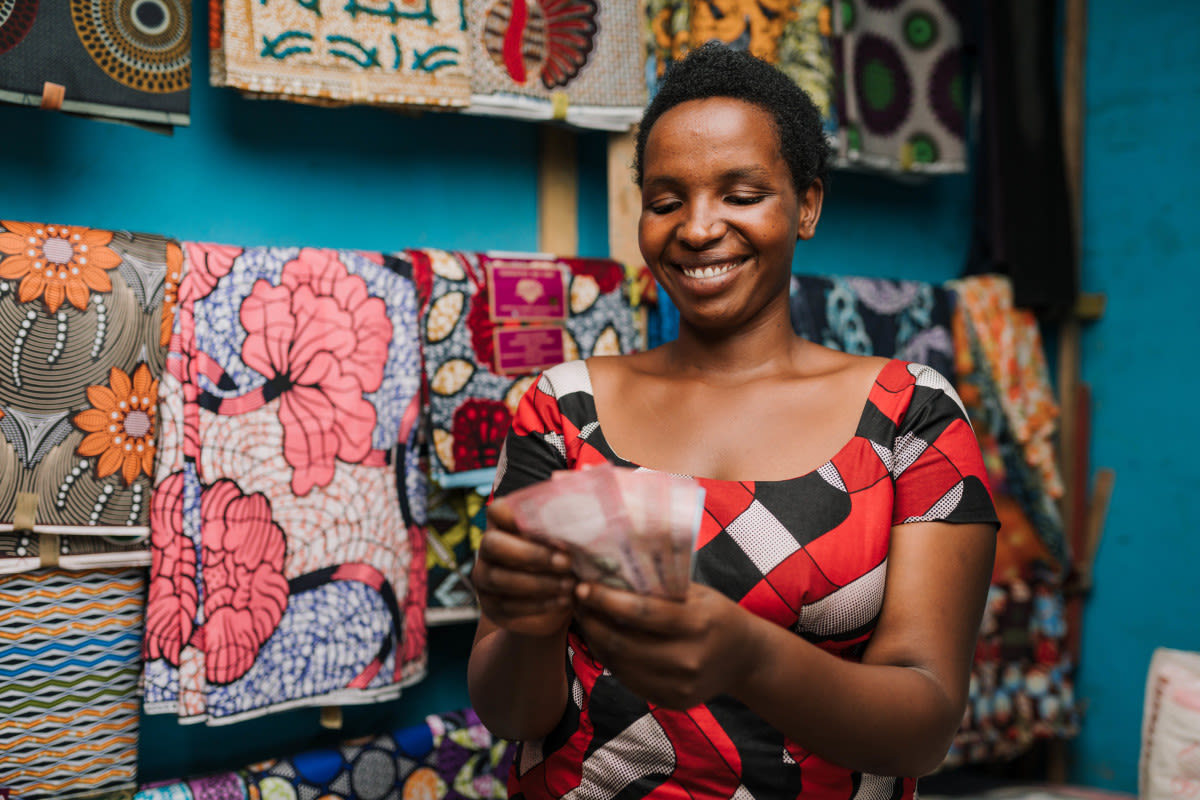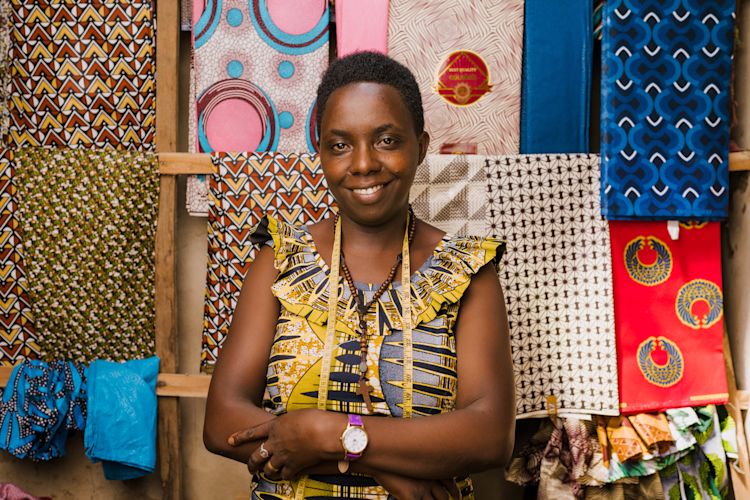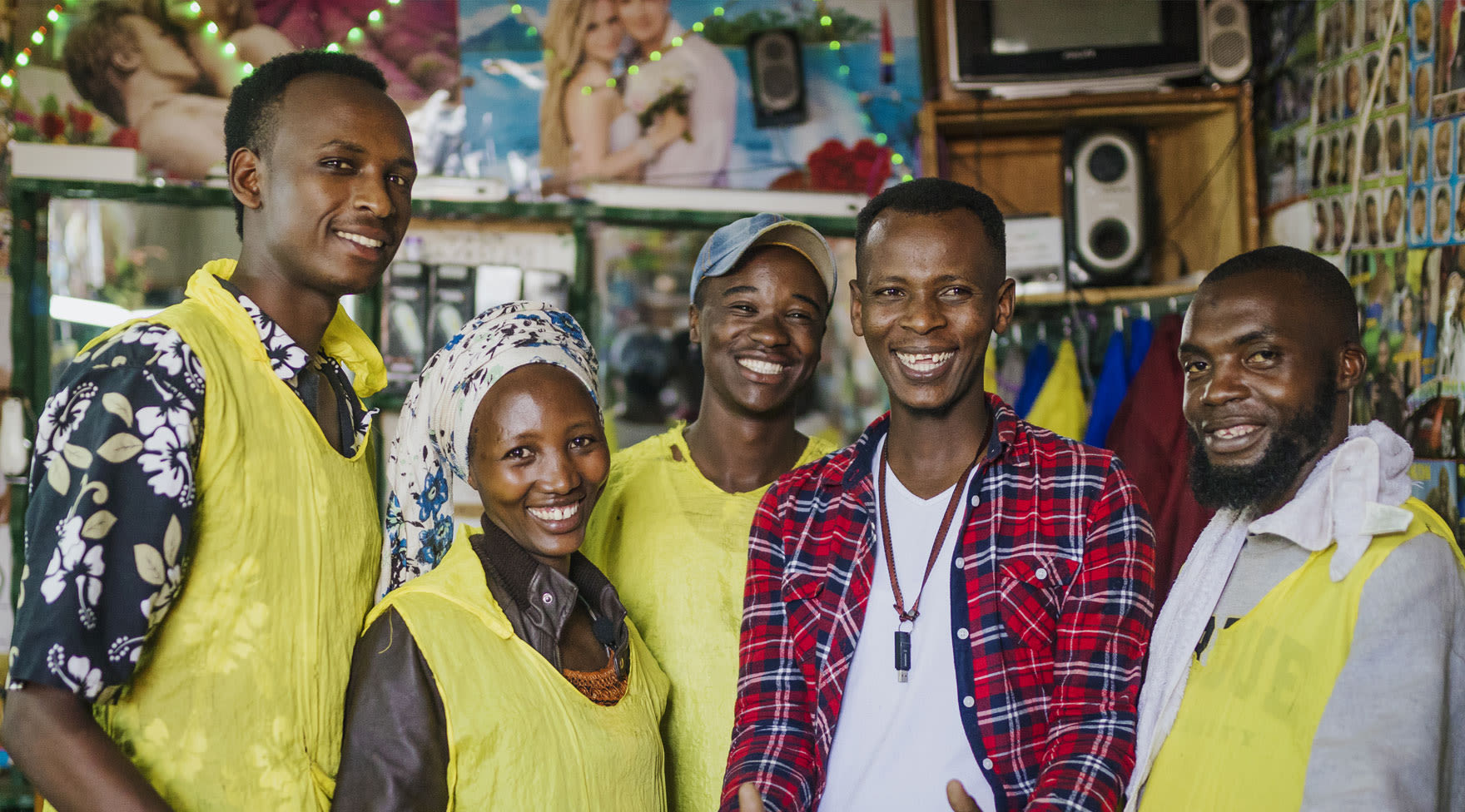
Millions of people around the world don’t have access to affordable financial services, which are things like bank accounts, loans, savings accounts and insurance. It’s reported more than half of those who are financially excluded are women.
Comic Relief believes that access to such services can be life-changing and positively impact whole communities as well as individuals and their families, which is why we have teamed up with Jersey Overseas Aid to develop a jointly funded programme to help more people experience the benefits of being financially included.
Here are five things we think it’s worth knowing about financial inclusion….
It’s about storing, saving, sending and receiving money safely
The term ‘financial inclusion’ simply means people having access to products and services that allow them to store, save, send and receive money safely. Examples include community savings groups, bank accounts and insurance that they can use to process transactions, payments and credit.
1.7 billion adults don’t have access to a bank account
The challenge is enormous and global. Research tells us that as many as 1.7 billion people in the world don’t have a bank account. There are many reasons for this, including lack of awareness and education that lead to myths and misconceptions (there is a perception that you need to have a lot of money to save or have a bank account), low income, physical access to banks (many people affected live in rural areas) and complex cultural and gender barriers.
The benefits are endless
Financial inclusion changes people’s lives. Evidence shows that when people have access to useful and affordable financial products and services, everyone benefits. People can plan and prepare for what life may throw at them – they can work towards long-term goals (like setting up their own business) or navigate through unexpected emergencies (like medical costs). As individuals grow, communities grow. As more people access and use such services, this in turn contributes significantly to sustainable economic growth.
Financial inclusion is linked to 8 of the 17 SDGs
The SDGs – Sustainable Development Goals – were set in 2015 to address some of the world’s most pressing challenges, and aim to end poverty, fight inequalities and tackle climate change. Financial inclusion has been identified as an enabler for eight of the 17, which you can read about here(opens in new window). The bigger picture is very big – improving access to financial services can have a powerful ripple effect on many areas of people’s life (better access can mean better health, better education and business growth) making it a very lucrative area to focus energy and investment.
Where Comic Relief, Jersey Overseas Aid and your donations come in
Together with Jersey Overseas Aid, we are investing £8million into helping more people gain access to financial services in Rwanda, Zambia, and Sierra Leone. Over the next few years, we will be supporting organisations to deliver programmes that will increase and improve access to financial services and financial literacy for 900,000 women and young people (it’s all about education, agency and access).
If you'd like to learn more about how this work will help people, you can read more here. The article explains how savings groups (one method of boosting financial inclusion) are helping refugees rebuild their lives in Rwanda.


